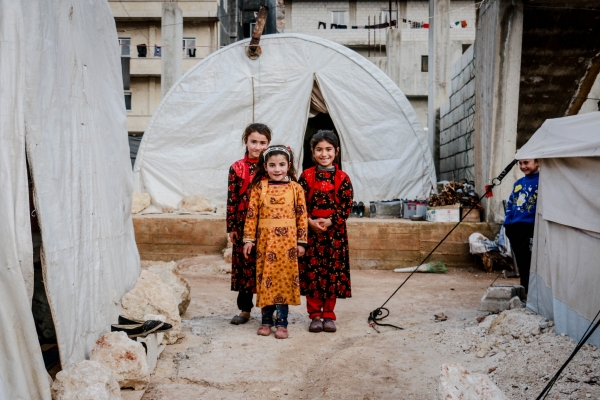As Post Traumatic Stress Disorder (PTSD) symptoms are highly diffused amongst Internally Displaced Persons (IDPs) and refugees from the Syrian conflict, the report entitled “The Destruction You Can’t See'' edited by the Non-Governmental Organisation (NGO) Syria Relief, one of the world's leading Syria-focused NGOs, address the issue of the lack of psychological health support in the region. Syria Relief provides support to millions of Syrians through emergency interventions, providing food, clean water, medical facilities, protection and education, nevertheless, activities of psychological support are still absent. However, the mental health status of refugees is not always a priority of donors and international actors, hence Syria Relief points out that it is necessary to raise awareness to facilitate the implementation of measures to put an end to the suffering of millions of Syrians.
The report aims to detect possible PTSD symptoms amongst the Syrian IDP population in Idlib and the Syrian refugee population in Lebanon and Turkey Syria Relief, through a self-assessment form submitted to 721 people. This was done to underline that the damage provoked by psychological disorders is not as visible as the material destruction provoked by the war, however its impact is much deeper than expected and much more lasting since it affects people's whole lives if not treated properly. Still, in order to talk about mental health issues, it is important to give a definition of Post-Traumatic Stress Disorder. PTSD is an anxiety disorder which people develop after being involved in traumatic events. Most commonly, it is a condition that affects people who have suffered experiences of the horrors of war and who are struggling to cope with them, such as military personnel or refugees. As Syria is still a country in conflict for more than ten years, people are still experiencing brutal fighting which provoke mental disorders. Furthermore, within the context of the Syrian conflict more than 6.1 million Syrians have been displaced internally and a further 5.5 million have become refugees within the region especially in Idlib, Lebanon and Turkey. Refugees are at high-risk of developing PTSD since they are more likely to have been exposed to traumatic events such as tortures, dangerous migration journeys, explosions and violence in general. In addition, refugees are a vulnerable category also because the fear of being forced to return to a dangerous situation provokes a Generalised Anxiety Disorder.
Previous studies have already shown that 19,6% of Syrians have suffered PTSD, however, the study conducted by Syria Relief on 721 people has demonstrated that 88% of people have experienced at least one traumatic event and at least one PTSD symptom. For refugees in Turkey and Lebanon this is 76% and 74% respectively, however for IDPs in Idlib, where the conflict is ongoing, it is a startling 99%. As regards mental health support, the 64% of refugees in Turkey report to have a good access to services. On the other side, 15% of refugees in Lebanon and only 1% of IDPs in Idlib believe there is some mental health support available. However, medical support is fundamental since PTSD has a strong impact on everyday life. Indeed, among the 15 symptoms of PTSD the most common ones are “feeling constantly on guard”, “blanking on important parts of the traumatic event”, “avoiding thoughts, feelings or conversations about the event(s)” and “acting or feeling as if the event(s) were happening again”. Therefore, mental health issues need to be treated, however in Syria and Lebanon medical provisions for displaced people, especially women, are insufficient and their access inequitable.
Accordingly, there is still lack of action and funding to address the mental health crisis affecting the Syrian population. When responding to the visible damages caused by conflicts, the mental health impact must be taken into account as well. As a result, NGOs’ activities need to be supported to allow IDPs, refugees and victims of conflict to receive mental health support.
To know more, please read:
https://syriarelief.org.uk/about-us/
https://reliefweb.int/sites/reliefweb.int/files/resources/ptsd%20report%20-%20final.pdf
Autohor: Eleonora Gonnelli; Editor: Benedetta Spizzichino




